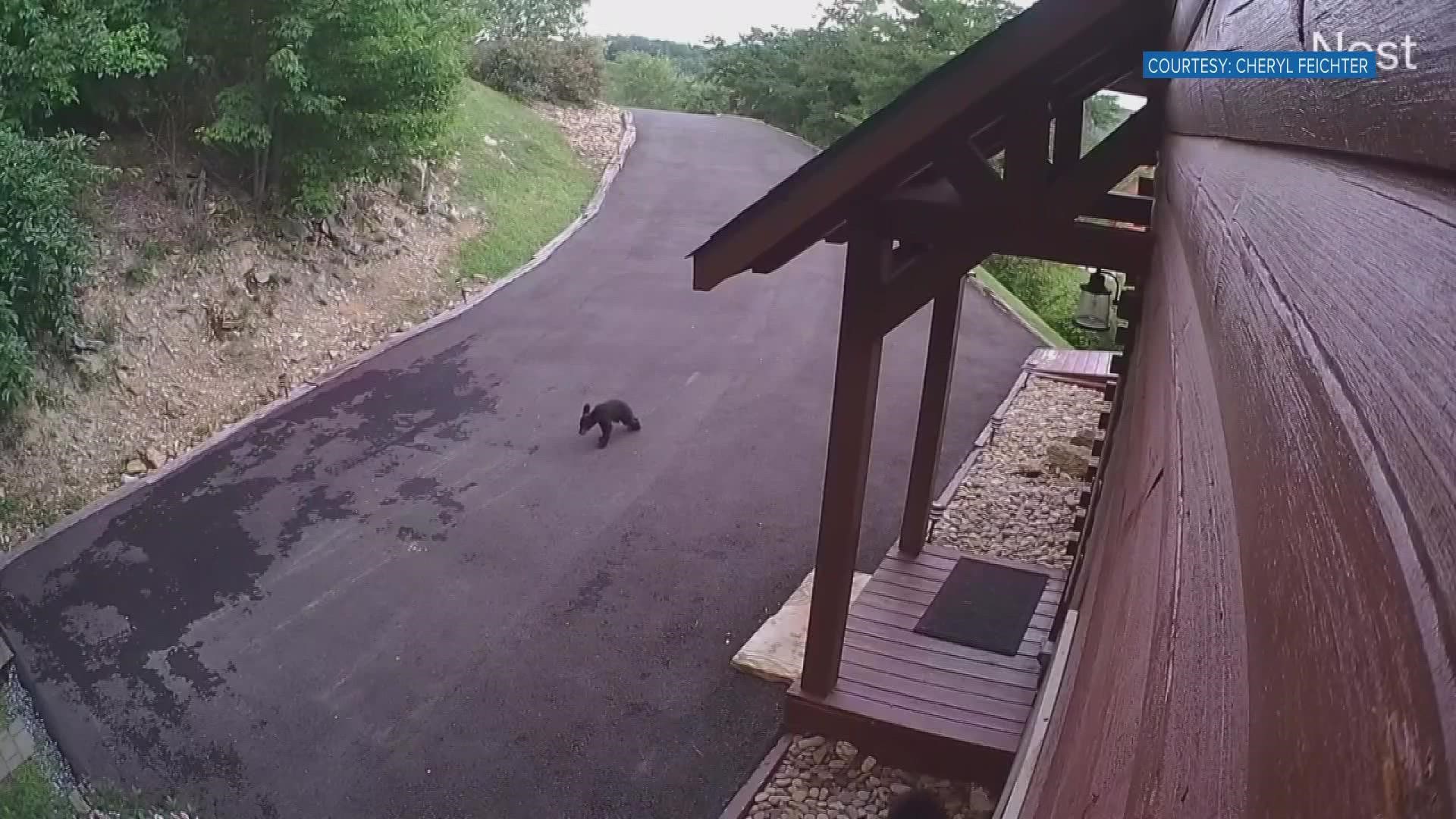SEVIERVILLE, Tenn. — It was barely past noon when a Sevierville homeowner received a notification on her phone. Far away in Ohio, she turned on her security camera to check what was going on.
To her surprise, a group of bears was passing by her home. One of the cubs seemed injured. The cub was dragging its leg as it was crying and trying to catch up with its mom and siblings.
"My heart! I watched it, I had to have watched it ten times and I was in tears because he's crying and he can't keep up, and luckily mama stopped for him and comes back, but I was just heartbroken," Cheryl Feichter said.
Feichter immediately reported it to the Tennessee Wildlife Resources Agency (TWRA) and to the Appalachian Bear Rescue. She also went the extra mile to publish it on Facebook so that her neighbors are aware of what she had seen.
To her surprise, there was nothing they could do.
Janelle Musser, a black bear support biologist for TWRA, explained that bears are resilient animals and they don't need much human interference. Unless they seem malnourished and immobilized people should not approach them.
"There's lots of different things that can happen and [bears] are very capable of recovering on their own," Musser said. "So, the number one thing when you see an injured bear is to not feed it. Really that's for any bear that you see is do not feed it, do not approach it."
Janelle explained there are other signs to check if an animal really needs help. For example, if a baby animal is alone and very skinny, that may be a sign of neglect. Still, people should not approach an animal but call the local animal services to handle the situation.
One of the misconceptions about bears is that they can appear cute and sweet, but are still dangerous wild animals. Another expert said some people try to pet bears. But he sent a reminder that they can also be territorial and protective of their young ones.
"I think as long as people just remember that these are wild animals and potentially dangerous animals, that they'll do a lot better around them, and bears have a tendency to do really well around human habitation," said Phil Colclough, director of animal care conservation and education zoo in Knoxville.

